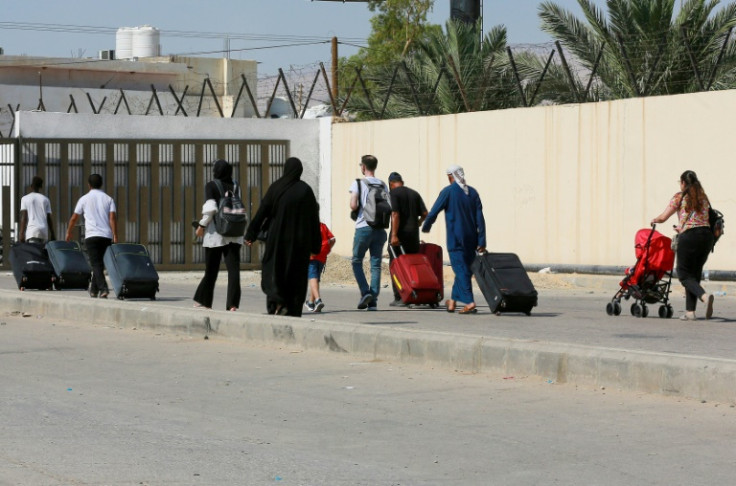US To Let Israelis Enter Visa-Free, Citing Less Discrimination

The United States said Wednesday it will start letting Israelis visit without visas after concluding its ally reduced discrimination against Arab Americans, an assessment rejected by some lawmakers and activists.
In an achievement long sought by Israel that places it in the same league as most Western nations, President Joe Biden's administration said that Israelis by the end of November will no longer need visas for short trips to the world's largest economy.
The decision came after Israel in July promised a series of steps to comply with longstanding US demands to treat all US passport holders equally without discriminating against Americans who are of Palestinian or other Arab heritage or who are Muslim.
Visa-free travel marks "a critical step forward in our strategic partnership with Israel that will further strengthen longstanding people-to-people engagement, economic cooperation and security coordination," Secretary of State Antony Blinken said in a statement.
He said the end result will be greater "freedom of movement for US citizens, including those living in the Palestinian Territories or traveling to and from them."
A US official briefing reporters insisted that the decision was not a "favor" to Israel but the result of progress.
But Biden is also increasingly seeking to work with Prime Minister Benjamin Netanyahu -- whose hard-right government Biden has frequently criticized -- to seek a historic peace deal with Saudi Arabia.
Ahmed Majdalani, the Palestinian social affairs minister, said the US decision "appears to be a reward" for letting Palestinian Americans enter Israel.
"It also confirms that America stands by Israel all the time," he said.
A number of lawmakers from Biden's own Democratic Party had urged Blinken not to go ahead before a Saturday deadline, saying the United States should have maintained pressure until Israel ends a two-tiered system that treats US citizens with Palestinian connections differently.
"It is clear that Israel is not in compliance with this law as it relates to reciprocal treatment for all US citizens," said a letter signed by 15 senators led by Chris Van Hollen and Brian Schatz and including Bernie Sanders.
Already, Israel does not require visas for Americans generally.
But until the July agreement, Palestinian Americans seeking to enter the West Bank were obliged to cross by the Allenby Bridge with Jordan and were not allowed through Ben Gurion airport near Tel Aviv, Israel's main international gateway.
The Democratic senators said that more change was necessary as US citizens who hold Palestinian identification cards still cannot rent cars at Ben Gurion and some have been stopped at Israeli checkpoints that prohibit Palestinians from going through.
An Arab American group announced Tuesday that it was filing a lawsuit to stop Israel's admission into the visa waiver program, saying there were still effectively "separate classes" of US citizens.
"Admitting Israel into the visa waiver program would be an endorsement of discrimination against Palestinian and Arab Americans," said Abed Ayoub, national executive director of the American-Arab Anti-Discrimination Committee.
But another US official said that Israel met demands by keeping refusal of Americans seeking to enter as non-immigrants at 2.27 percent in the last fiscal year, within the target of a maximum three percent.
The American Jewish Committee hailed the decision, which it said would "allow for even stronger ties" between the United States and Israel.
US officials said they would review Israel's progress and could rescind the visa waiver status if there is backsliding.
Historically the United States, in letting foreigners enter without visas, has been most concerned that they not stay illegally and that their countries issue secure passports.
Nearly all Western nationals enjoy visa-free entry into the United States including people from all European Union members except Bulgaria, Cyprus and Romania.
Other beneficiaries include people from high-income Asian societies -- Japan, South Korea, Singapore, Taiwan and Brunei.

© Copyright AFP 2024. All rights reserved.





















